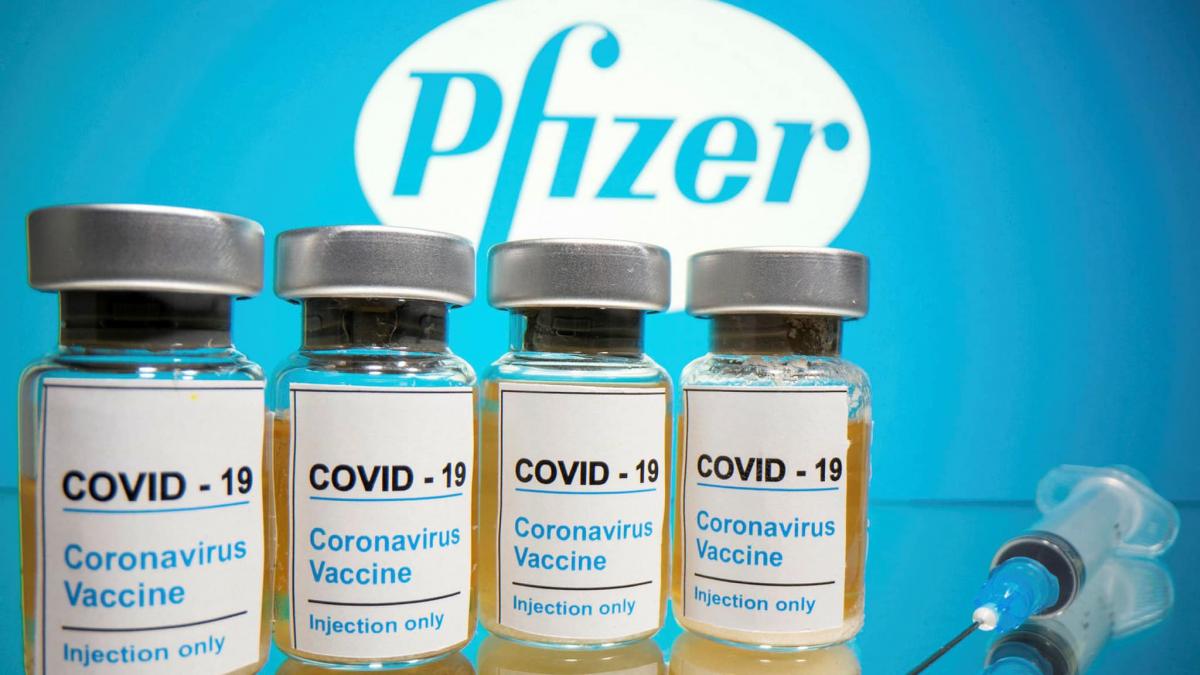There are no products in your shopping cart.
| 0 Items | £0.00 |


NIGERIAN senators have warned that other countries could impose travel restrictions on Nigerians if the federal government fails to administer Covid-19 vaccines to its citizens when mass vaccinations start shortly.
With several pharmaceutical companies having successfully developed a Covid-19 vaccine, a mass vaccination programme is expected to start before the end of the year. Already, several countries have already purchased large quantities of Pfizer's vaccine and are drawing up plans for distribution and administration.
So far, Nigeria does not have a coherent vaccination programme, there are no plans to manufacture a vaccine in the country and it is not clear if the Pfizer drug will be made available to everyone free of charge. Debating the matter yesterday, senators warned that if Nigerians are not vaccinated, they may face the prospect of international travel bans.
Yesterday, Senator Ibrahim Oloriegbe, the chairman of the senate committee on health, moved a motion titled Urgent Need for Nigeria to Obtain and Administer Covid-19 Vaccines to its Citizens. In it he, said the government must provide mass vaccination as the vaccines promised the country by the Global Alliance for Vaccine Initiative (Gavi) would not be enough.
His motion, which was adopted by the senate, lamented that apart from the pledge by Gavi, Nigeria had not produced a plan for the procurement, distribution and administration of the vaccines to Nigerians. Senator Oloriegbe moved that to avoid a global travel ban on Nigerians, the federal government should make budgetary provision to procure and administer Covid-19 vaccines.
He also expressed concern that compliance with Covid-19 preventive measures such as hand washing, wearing of face masks and social distancing had diminished. Senator Oloriegbe stated that while some countries had approved vaccines for Covid-19 and were administering the vaccine to their citizens, many others had completed plans on the procurement, distribution and administration of the vaccines to their citizens.
Furthermore, Senator Oloriegbe said that despite the change in the epidemiology trends of the virus, the financial plan developed by Nigeria and World Bank in April to fund the response to the pandemic was still being implemented without taking due cognizance of the changes by re-allocating the funds to vaccine procurement. Senators thus voted to mandate the Nigerian health authorities to look into the matter and report back to the senate within two weeks.
Senator Oloreigbe said: “Failure to administer vaccines to Nigerians will result in the country not being able to control the Covid-19 infection and a possible ban on travelling by Nigerians may be instituted by countries around the world. The consequence of non-administration of the vaccines to Nigerians will include worsening social and economic situations.”
From his motion, the senate resolved to direct its committees on health and primary health care to invite the Federal Ministry of Health, the Presidential Task Force on Covid-19, the National Primary Health Care Development Agency, the National Agency for Food and Drugs, the Nigerian Centre for Disease Control, the Federal Ministry of Finance and other relevant government agencies to present details of protocol, funding, procurement, administration and monitoring of Covid-19 vaccine in Nigeria. However, Dr Innocent Uja, the president of the Nigerian Medical Association, pointed out that even when they bring this vaccine to Nigeria, it cannot be used until it undergoes a clinical trial.
Dr Uja added: “It is surprising that the federal government has not made budgetary provisions for Covid-19 vaccine procurement. I’m aware that the federal government is talking with Pfizer and the Russians, although no agreement has been reached. They can’t be talking with them if they don’t have the intention of buying Covid-19 vaccine from them.”